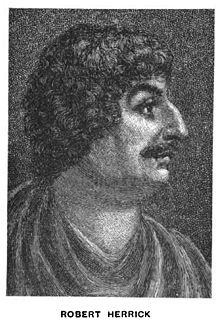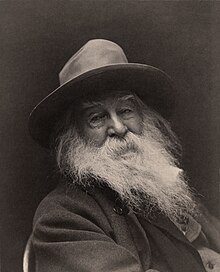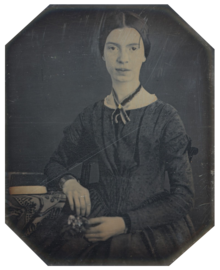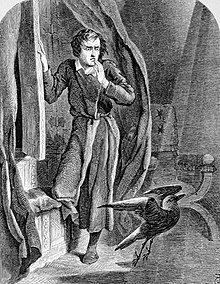The Midsummer Night's Dream
 Theseus, duke of Athens, is preparing for his marriage to Hippolyta, queen of the Amazons, with a four-day festival of pomp and entertainment. He commissions his Master of the Revels, Philostrate, to find suitable amusements for the occasion. Egeus, an Athenian nobleman, marches into Theseus’s court with his daughter, Hermia, and two young men, Demetrius and Lysander. Egeus wishes Hermia to marry Demetrius (who loves Hermia), but Hermia is in love with Lysander and refuses to comply. Egeus asks for the full penalty of law to fall on Hermia’s head if she flouts her father’s will. Theseus gives Hermia until his wedding to consider her options, warning her that disobeying her father’s wishes could result in her being sent to a convent or even executed. Nonetheless, Hermia and Lysander plan to escape Athens the following night and marry in the house of Lysander’s aunt, some seven leagues distant from the city. They make their intentions known to Hermia’s friend Helena, who was once engaged to Demetrius and still loves him even though he jilted her after meeting Hermia. Hoping to regain his love, Helena tells Demetrius of the elopement that Hermia and Lysander have planned. At the appointed time, Demetrius stalks into the woods after his intended bride and her lover; Helena follows behind him.
Theseus, duke of Athens, is preparing for his marriage to Hippolyta, queen of the Amazons, with a four-day festival of pomp and entertainment. He commissions his Master of the Revels, Philostrate, to find suitable amusements for the occasion. Egeus, an Athenian nobleman, marches into Theseus’s court with his daughter, Hermia, and two young men, Demetrius and Lysander. Egeus wishes Hermia to marry Demetrius (who loves Hermia), but Hermia is in love with Lysander and refuses to comply. Egeus asks for the full penalty of law to fall on Hermia’s head if she flouts her father’s will. Theseus gives Hermia until his wedding to consider her options, warning her that disobeying her father’s wishes could result in her being sent to a convent or even executed. Nonetheless, Hermia and Lysander plan to escape Athens the following night and marry in the house of Lysander’s aunt, some seven leagues distant from the city. They make their intentions known to Hermia’s friend Helena, who was once engaged to Demetrius and still loves him even though he jilted her after meeting Hermia. Hoping to regain his love, Helena tells Demetrius of the elopement that Hermia and Lysander have planned. At the appointed time, Demetrius stalks into the woods after his intended bride and her lover; Helena follows behind him.When Titania wakes, the first creature she sees is Bottom, the most ridiculous of the Athenian craftsmen, whose head Puck has mockingly transformed into that of an ass. Titania passes a ludicrous interlude doting on the ass-headed weaver. Eventually, Oberon obtains the Indian boy, Puck spreads the love potion on Lysander’s eyelids, and by morning all is well. Theseus and Hippolyta discover the sleeping lovers in the forest and take them back to Athens to be married—Demetrius now loves Helena, and Lysander now loves Hermia. After the group wedding, the lovers watch Bottom and his fellow craftsmen perform their play, a fumbling, hilarious version of the story of Pyramus and Thisbe. When the play is completed, the lovers go to bed; the fairies briefly emerge to bless the sleeping couples with a protective charm and then disappear. Only Puck remains, to ask the audience for its forgiveness and approval and to urge it to remember the play as though it had all been a dream.
>> "Love looks not with the eyes, but with the mind"
Helena: "Love looks not with the eyes but with the mind."In this soliloquy, Helena ponders the transforming power of love, noting that Cupid is blind. The lovesick Helena has been abandoned by her beloved Demetrius, because he loves the more attractive Hermia. Helena, while tall and fair, is not as lovely as Hermia. Helena finds it unfair that Demetrius dotes on Hermia's beauty, and she wishes appearances were contagious the way a sickness is so that she might look just like Hermia and win back Demetrius. The connection of love to eyesight and vision are matters of vital importance in this play about love and the confusion it sometimes brings.
What is literature for?
Amendment
An amendment is a formal or official change made to a law, contract, constitution, or other legal document. It is based on the verb to amend, which means to change. Amendments can add, remove, or update parts of these agreements. They are often used when it is better to change the document than to write a new one.
>> Thirteenth Amendment to the United States Constitution
Slavery had been tacitly enshrined in the original Constitution through provisions such as Article I, Section 2, Clause 3, commonly known as the Three-Fifths Compromise, which detailed how each state's total slave population would be factored into its total population count for the purposes of apportioning seats in the United States House of Representatives and direct taxes among the states. Though many slaves had been declared free by President Abraham Lincoln's 1863 Emancipation Proclamation, their post-war status was uncertain. On April 8, 1864, the Senate passed an amendment to abolish slavery. After one unsuccessful vote and extensive legislative maneuvering by the Lincoln administration, the House followed suit on January 31, 1865. The measure was swiftly ratified by nearly all Northern states, along with a sufficient number of border and "reconstructed" Southern states, to cause it to be adopted before the end of the year.
Though the amendment formally abolished slavery throughout the United States, factors such as Black Codes, white supremacist violence, and selective enforcement of statutes continued to subject some black Americans to involuntary labor, particularly in the South. In contrast to the other Reconstruction Amendments, the Thirteenth Amendment was rarely cited in later case law, but has been used to strike down peonage and some race-based discrimination as "badges and incidents of slavery". The Thirteenth Amendment applies to the actions of private citizens, while the Fourteenth and Fifteenth Amendments apply only to state actors. The amendment also enables Congress to pass laws against sex trafficking and other modern forms of slavery.
Magic mirror
The Magic Mirror is a mystical object that is featured in the story of Snow White.
The Magic Mirror is owned by the Evil Queen and has been depicted in different versions as either a hand mirror or a mirror on the wall. Every morning, the Evil Queen asked the Magic Mirror the question "Magic mirror in my hand, who is the fairest in the land?". The mirror always replies: "My Queen, you are the fairest in the land." The Queen is always pleased with that, because the magic mirror never lies. But, when Snow White reaches the age of seven, she becomes as beautiful as the day and even more beautiful than the Queen and when the Queen asks her mirror, it responds: "My Queen, you are the fairest here so true. But Snow White is a thousand times more beautiful than you." This resulted in the Evil Queen enlisting a huntsman to kill Snow White and bring her Snow White's lungs and liver. After eating the lungs and liver of a boar that the Huntsman passed off as Snow White's lungs and liver, the Evil Queen asked the Magic Mirror the question "Magic Mirror in my hand, who is the fairest in the land?" The mirror replies: "My Queen, you are the fairest here so true. But Snow White beyond the mountains at the seven Dwarfs is a thousand times more beautiful than you." This caused the Evil Queen to disguise herself as different women to kill Snow White. After the latest attempt with a poison apple which was undone by the Prince and Snow White marrying him, the Evil Queen asked the Magic Mirror who the fairest in the land was, the Magic Mirror quoted "You, my Queen, are fair so true. But the young Queen is a thousand times fairer than you." The Evil Queen learned too late at the wedding that the young queen in question was Snow White which eventually leads to the Queen's death which varied per version.













